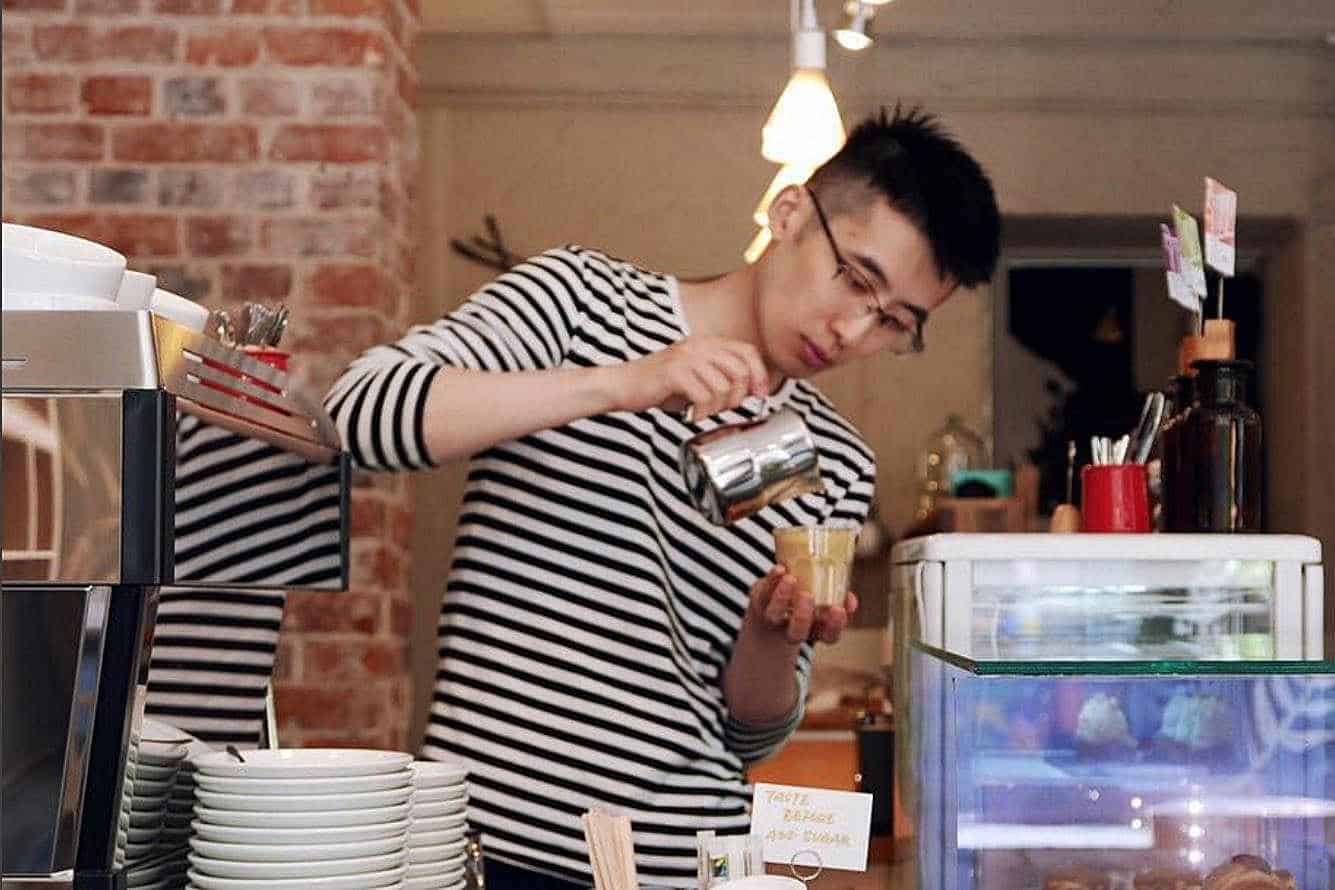During our visit of the blooming coffee scene of Bucharest, we stopped by Bloom Speciality Coffee shop, a cafe run by Cosmin Mihailov, currently also the roaster and green bean buyer at Sloane Coffee. We featured Sloane as the roaster of the month of March and this interview as an insight into Cosmin’s background and his opinion of the speciality coffee.
What past experiences shaped you as a coffee professional you are today?
I was 20 years old. I just moved to England and I was not the person I am today. I was more immature. I wanted to make money. And then I discovered coffee. I used to hate coffee. I thought it was bitter.
I walked into this shop and an Australian bloke was there and he was like: “Oh, have a flat white.” and I was like “No, I want a soda or something like that.” And he said: “No, you have to have a flat white. If you don’t like it, I’ll pay for it,” and poured a perfect rosetta. I didn’t know about latte art back then.
My dad is a painter and my sister is a painter so I grew up with artsy stuff around me. I saw the latte art and I was like: “Oh, my God! What is this?!” And I tried the flat white and it was very sweet. I think it was an Ethiopian but I can’t remember. I thought: “I want to do this.” I used to work in a 2 Michelin-starred restaurant and I quit my job the next day. I didn’t even know if I was going to get a job at that shop. I just applied for it. And they didn’t reply. I went there two weeks after and I insisted and they gave me a chance.
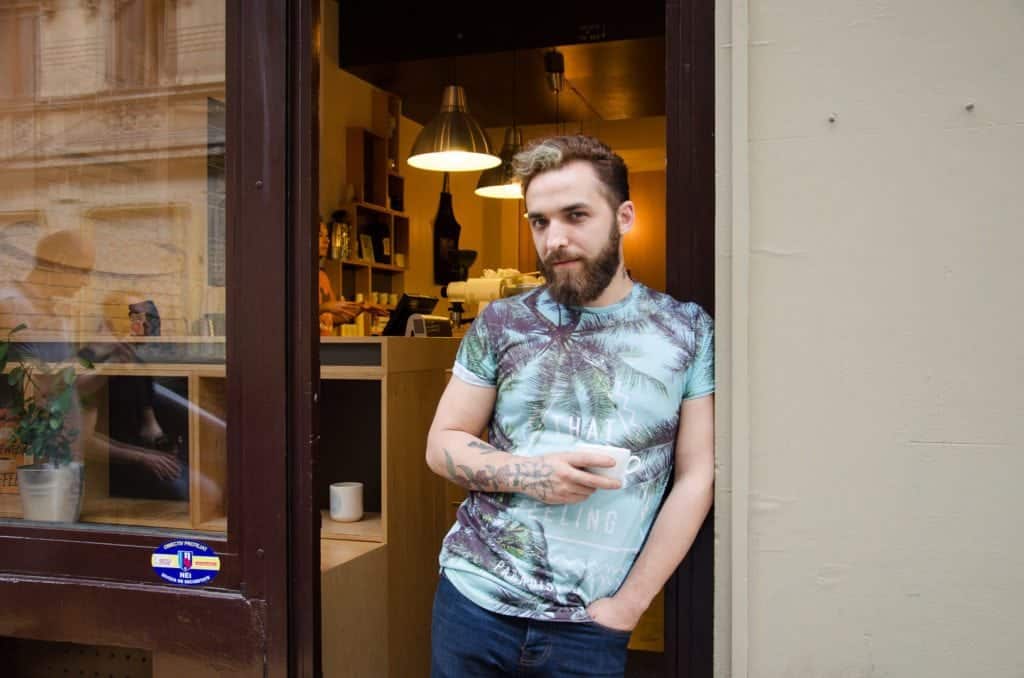
I worked in several shops since then. I always changed. Mainly because I wanted to learn as much as possible from each one… I just wanted to see as many views as possible on what coffee is and I think the last shop I worked for, that wasn’t mine, was Maxwell’s [Maxwell Colonna-Dashwood’s] Colonna & Small’s. And that completely changed the way I viewed coffee, in one day.
What experience did you get at Colonna & Small’s?
Well, it is funny because I applied for Collona and Small’s in 2010, I think, and I didn’t get the job because nobody answered my email. And then I was there just visiting and I heard Max was looking for staff. I dropped him an email… We had an interview and got along straight from the beginning. And the first thing we did was TDS some lungos and some espressos. That was like the induction to his shop. Usually, people show you: “This is where we wash the dishes, this is where you get the toilet paper.”
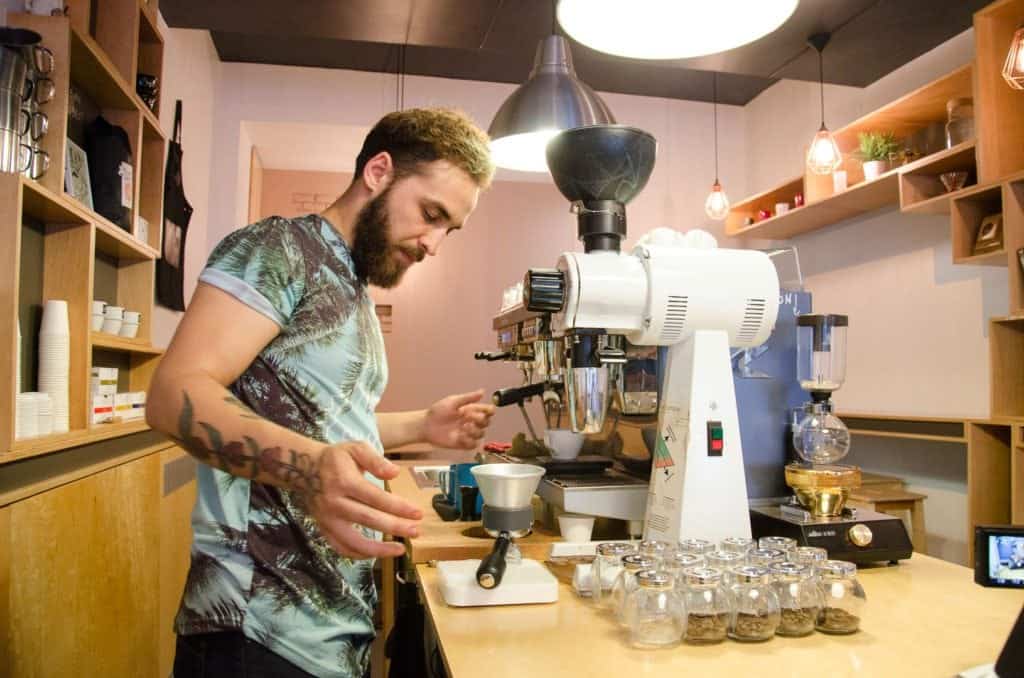
Max was just writing about the water stuff back then. And I saw him so excited about everything. The idea with the coffee [in the shop] was to have three different origins. Change them every week. I was like: “Wow, that’s hard.” And we used to dial them in every morning and all of us used to write on little post-it notes what we think they tasted like. And after a week we were all a match. And I found it amazing because I talk about coffee as a subjective matter, but it wasn’t there because we were always all getting the same results. So that kind of changed everything I viewed as coffee. Cause I saw coffee in a very strict way—coffee has to be this. And then he showed me coffee is a lot of things and we don’t understand coffee and we literally know anything about it. We are just starting to learn. We are trying to get more data about it.
Is there a career in coffee?
All my family didn’t agree with me for 6 out of 8 years, basically. People from the outside do not see how hard it is what we do. Cause it is really hard. They don’t understand the potential career there is in coffee. There is a potential career in coffee, trust me, guys. They do not see behind-the-scenes that go on. They don’t see the maximum density tamp. They don’t see 4.8 bars [pressure]. They just see us tamp something, push a button, do some milk. And they think: “Oh my God, that’s easy!” And then they come for a course and they’re like: “Oh my God, this is so hard.” There is a lot of things that people do not see. And your family might not agree with you when you say: “I wanna be a coffee professional.”
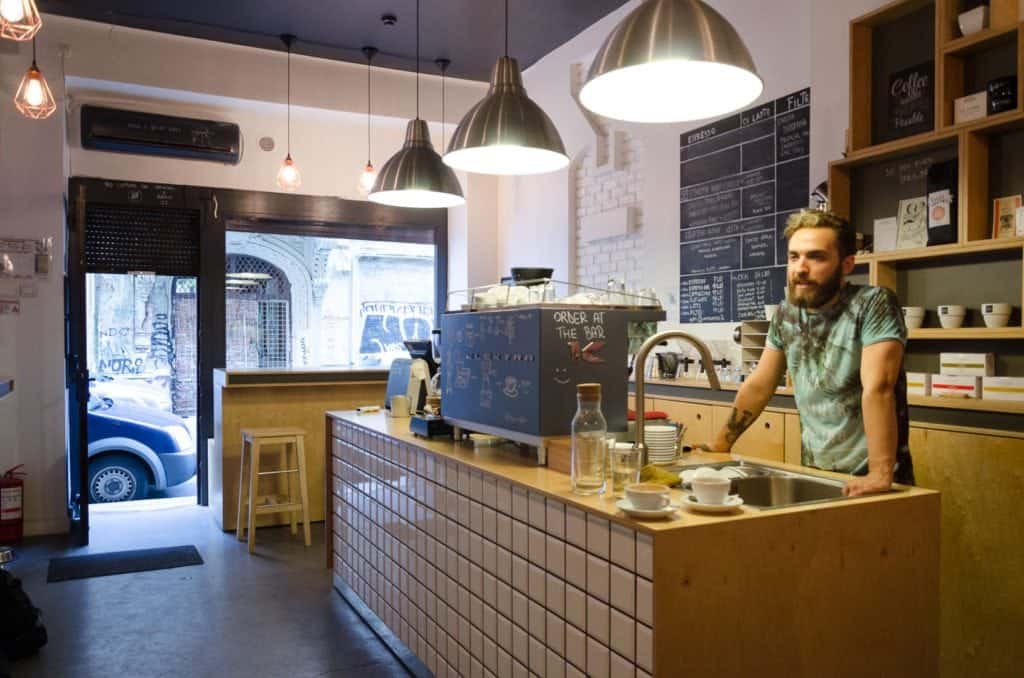
There are a lot of branches you can go. You can become a roaster, you can become a manager, you can become a lot of things in coffee. You can become a coffee writer, there is a lot of coffee blogs. You can go around Europe and interview people. And ask them about it and show it to the world. Cause this is like showing different cultures and the impact they have on coffee, how they see it. So there is a lot of ways that you can develop a career in coffee.
What is the secret behind a successful cafe?
There is no secret. It is just a lot of work. Never stop [working]. I’ve hit the bottom so many times. At least once or twice a year. Just get up. It is hard and it is going to be hard. Work harder, focus harder, talk to more people, put your ideas out there. Be open to new ideas, don’t be narrow-minded. Struggle. The first years are going to be hard, but just push yourself and if you do that, I guarantee you, you are going to end up having your own roastery, your own business. It is just about having the right people around you.
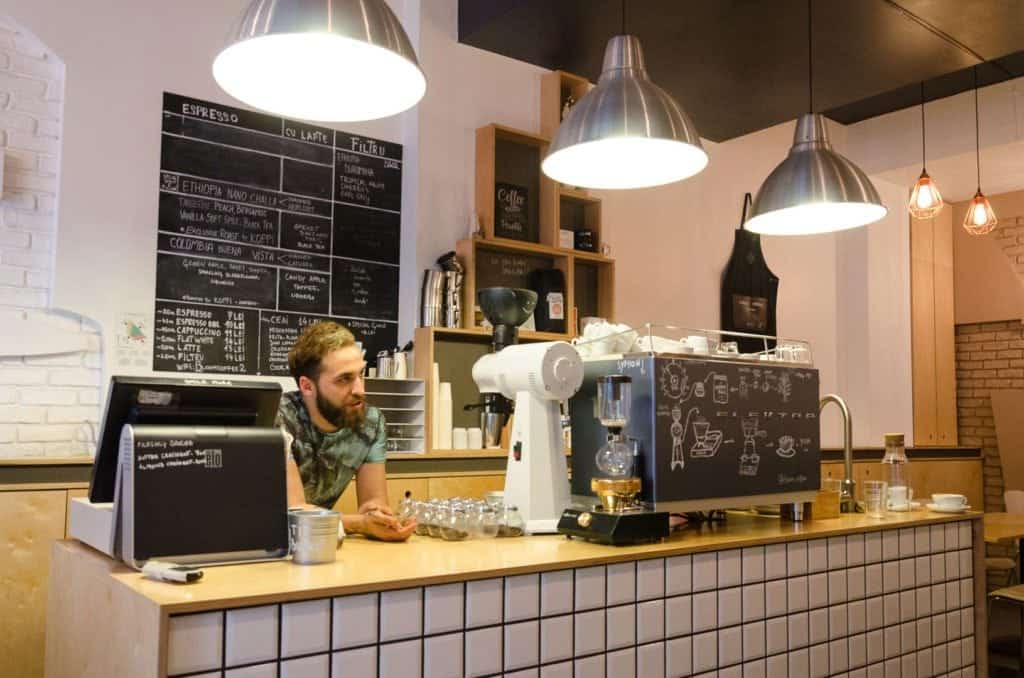
What is the best way to approach a coffee mentor?
What I’ve recommended to a lot of people is, when you see your mentor, go and have a conversation with them. This is what we want. We want to be challenged. We want to have conversations because that is what inspires us later on and what inspires us to become better.
A thousand minds are better than one, two minds are better than one. Go and have a chat with them. Don’t be intimidated. If you look up to somebody in the industry, go and have a chat with them. This is what happened with me. And now I am friends with people I used to dream about meeting. Now and again we chat and send photos to each other, mainly because I treat them like humans.
What is your estimated time to become a coffee professional?
I think it takes about 4–6 months to understand the basics in the shop that is focused on coffee. So in 4–6 months you can actually be a really good barista if you work with a lot of people that are really open. But mainly, try as much coffee as possible. Different roasters, different shops, different countries. Coffee is not just a little thing here, it is a whole universe.
It is about creating your palette, that is very important for a barista. And that is not just from coffee. It is the alcohol you drink, the food you eat. These are all part of your palette. Work on the sensory side, the technical side is quite easy. It is just mechanical, even the latte art. It is a mechanical movement of the hand. But the hardest thing to get is the palette. The most work you have to do is on your palette and your ego!
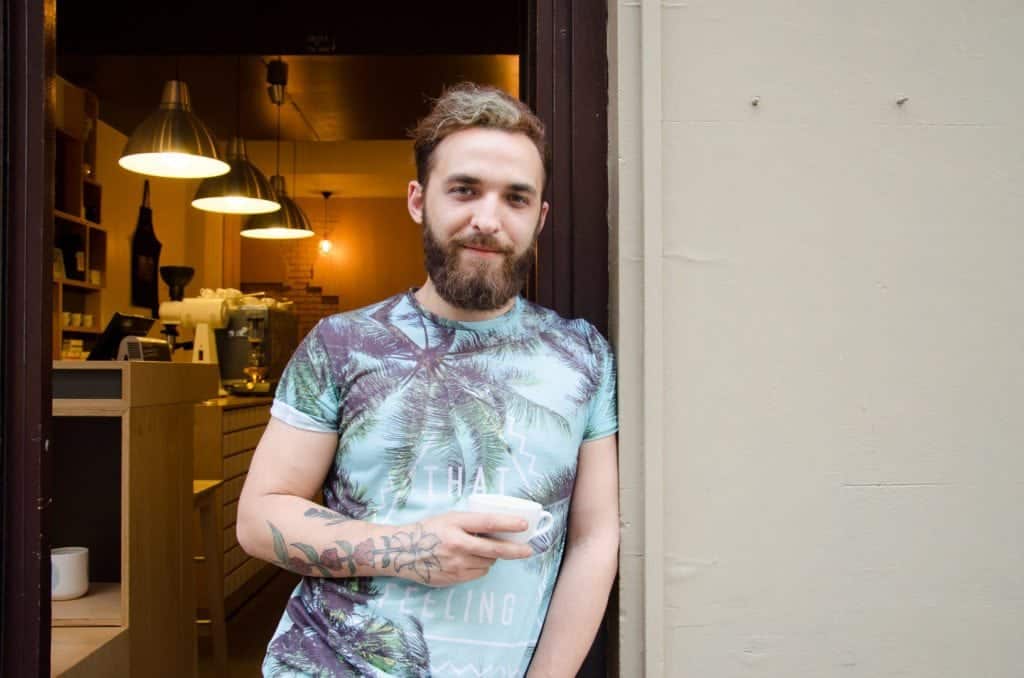
What would you teach a new person in coffee within one week?
I would work on flavour awareness—what the different grades of underdeveloped, underextracted coffee are, what overextracted, overdeveloped coffees are. Just so he understands the extremes. So if he understands the extremes he understands the middle as well. Because we focus so much on what coffee extraction should be, we forget what the extremes are.
What I usually recommend, when dialling in the coffee, is to go as far and as high as possible. That is the easiest way of understanding the coffee—if it is bitter and has a nasty impact on your palette than you know you can’t go higher. Whereas if you go lower, you can actually fool your palette into thinking it is sweet, while you are missing a lot of things you are not perceiving.
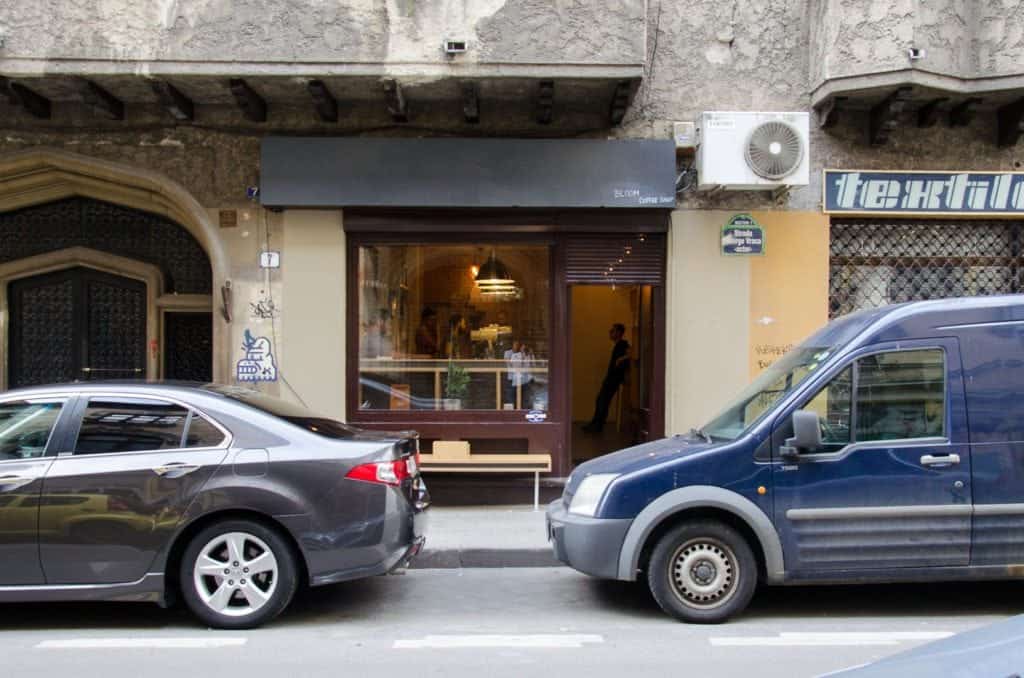
What do you wish to happen for the community within the next five years?
I just wish for the community to get stronger. A lot of people watching this will understand what I mean. Cause a lot of times we become very absorbed by what we do and we don’t see it as a community, but rather as: What impact do I have? It is all of us, not just one person.
I could not do what I do without Steam, Origo and a lot of other shops in Bucharest. There would not be enough awareness. So we are an ecosystem. We all work for the same thing—promoting speciality coffee, and making really damn good coffee. So I would wish communities to get closer and stronger everywhere, not just here.
